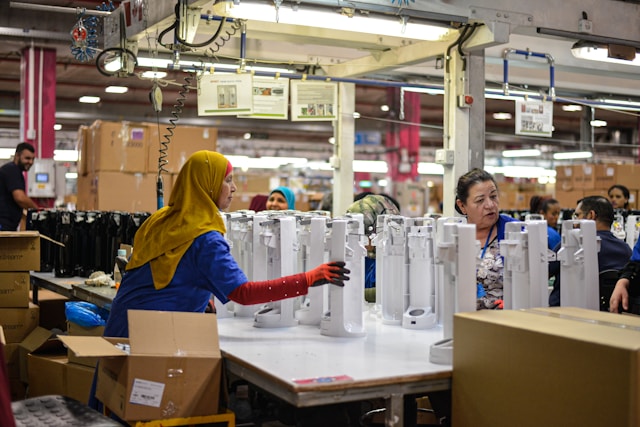
Revolutionize Your Production Line: The Power of Advanced Rework Stations
Key Takeaways:
- Rework stations are crucial in modern manufacturing to maintain product quality and extend their lifecycle.
- Investing in advanced rework stations can lead to significant long-term cost savings and contribute to a more sustainable manufacturing process.
- Integrating sophisticated rework solutions can optimize your production line and future-proof your manufacturing operations.
Table of Contents:
- Understanding Rework Stations in Modern Manufacturing
- The Role of Rework Stations in Ensuring Product Quality
- Cost-Effectiveness of Investing in High-Quality Rework Solutions
- Incorporating Rework Stations into Your Production Line
- Technological Advances in Rework Station Capabilities
- Rethinking Repairs: Sustainable Practices in Electronics Rework
- Best Practices for Maximizing Rework Station Efficiency
Understanding Rework Stations in Modern Manufacturing
As a linchpin of modern manufacturing, rework stations are the epicenter for corrective measures in the assembly process. These sophisticated systems allow manufacturers to make precise amendments to assembled electronics with minimal disruption. Their capacity to desolder, reposition, and reassemble various electronic components with laser-focused accuracy has revolutionized the industry. Through these innovations, companies can swiftly address defects, ensuring continuity and resilience in their manufacturing processes.
The Role of Rework Stations in Ensuring Product Quality
Quality assurance is not just a term but a mantra within the manufacturing realm. By providing a means to repair and modify electronic assemblies meticulously with electronic tools like chip master Key Largo FL, rework stations can upkeep stringent quality standards required by today’s technological advancements. This equates not only to salvaging components but also to preserving brand integrity through the consistent delivery of reliable products.
Cost-Effectiveness of Investing in High-Quality Rework Solutions
While sticker shock may dissuade some from investing in state-of-the-art rework stations, leaders in the field recognize the profound implications of such a decision on the bottom line. The financial case becomes clear when calculating the costs associated with scrapped materials and re-build labor against rework stations’ efficiency and corrective precision. This prudent investment hedges against the risks of product failure and elevates output standards while instilling eco-conscious values by minimizing waste.
Incorporating Rework Stations into Your Production Line
The complexity of integrating rework capabilities into a production line is not to be underestimated. It necessitates a strategic approach, ranging from selecting a rework station equipped with the right capabilities to meet diverse product demands to executing a comprehensive training program for operators. The resultant harmony between man and machine elevates the production capacity and reduces error rates and a surge in manufacturing prowess.
Technological Advances in Rework Station Capabilities
Technology and manufacturing are in a constant dance of progression, with rework stations now featuring prominently in this choreography. The emergence of automated rework systems equipped with artificial intelligence exemplifies the zenith of current capabilities, offering unsurpassed accuracy and adaptability. As these technologies mature, we are witnessing the capacity for more complex reworks, further extending the life of electronic components and assemblies.
Rethinking Repairs: Sustainable Practices in Electronics Rework
Manufacturing must pivot towards sustainability to maintain viability in the environmental landscape of today and tomorrow. In this context, rework stations emerge as a viable solution, enabling the repair and refurbishment of electronic components – practices that are pillars of a circular economy. By doing so, they contribute to economic sustainability and set industry precedents for ethical manufacturing practices.
Best Practices for Maximizing Rework Station Efficiency
Best practices must be adopted to extract the maximum potential from rework stations. This includes a stringent maintenance schedule and routine calibration to sustain peak operational status. Additionally, workflow process optimization, tailored to the scale and complexity of production requirements, can unlock new efficiencies and further the performance of these sophisticated systems.




